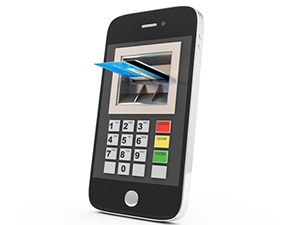
Fear of cyber crime is one of many barriers preventing clients from banking digitally.
This is according to a study by First National Bank (FNB), which found that although FNB has seen a 33% increase in the number of its customers earning less than R300 000 per annum using the FNB banking app, some in this segment are still wary of new technology.
Costs, access to smartphones and lack of exposure and knowledge about using digital platforms were some of the barriers that prevent this market from banking digitally: "Given the virtual nature of digital banking channels, customers are largely uncertain as to how they work and how to access or set them up. Most are intimidated by technology and fear making costly mistakes when transacting," according to the study.
Ryan Prozesky, CEO of Value Banking Solutions at FNB, says when engaging customers about the benefits of cellphone, online and app banking, the bank found that once they understand the benefits and trial digital banking, they are much more receptive to these technological advancements.
"Feedback received from customers enlightened us to the need for further education and to demonstrate the endless benefits and solutions provided by digital banking channels. One of the primary benefits being the cost-saving and convenience of being able to bank anywhere at any time," he adds.
Further misconceptions and barriers that prevent clients from banking digitally were lack of trust in their own ability and fear of fraud – trust is still an ongoing issue, coupled with the fear of becoming victims of cyber crime due to a lack of knowledge and exposure to digital banking channels. Furthermore, while some customers are aware of digital channels, they are still more comfortable banking through branches due to the entrenched creditability and trust they have in branch agents in a face-to-face environment, notes the study.
According to the Banking Association South Africa, there are still about 11.3 million adults (16+) who are unbanked in SA. Even if the majority of adult South Africans have access to basic banking services, some people do not have the financial literacy and skills to build the economic strength and independence needed to enhance their future financial well-being, explains the association.
A FinScope South Africa 2016 Survey found that in SA levels of financial inclusion remained stable over the last three years, which may be an indication of a saturated financial sector. In total, 77% of all adults have a bank account. However, if the SASSA cardholders are excluded, only 58% of adults are banked, says FinScope.
Claude Schuck, regional manager for Africa at Veeam, says South Africa and the African continent are sterling examples of how financial institutions are pushing the envelope when it comes to revolutionising technology in their sector.
"Today's bank has become an icon on your phone; it's no longer the bricks-and-mortar building of old. That brings with it both pros and cons. As much as it offers the user speed and convenience, it also means that a customer's relationship with and loyalty towards the bank relies on technology," asserts Schuck.

